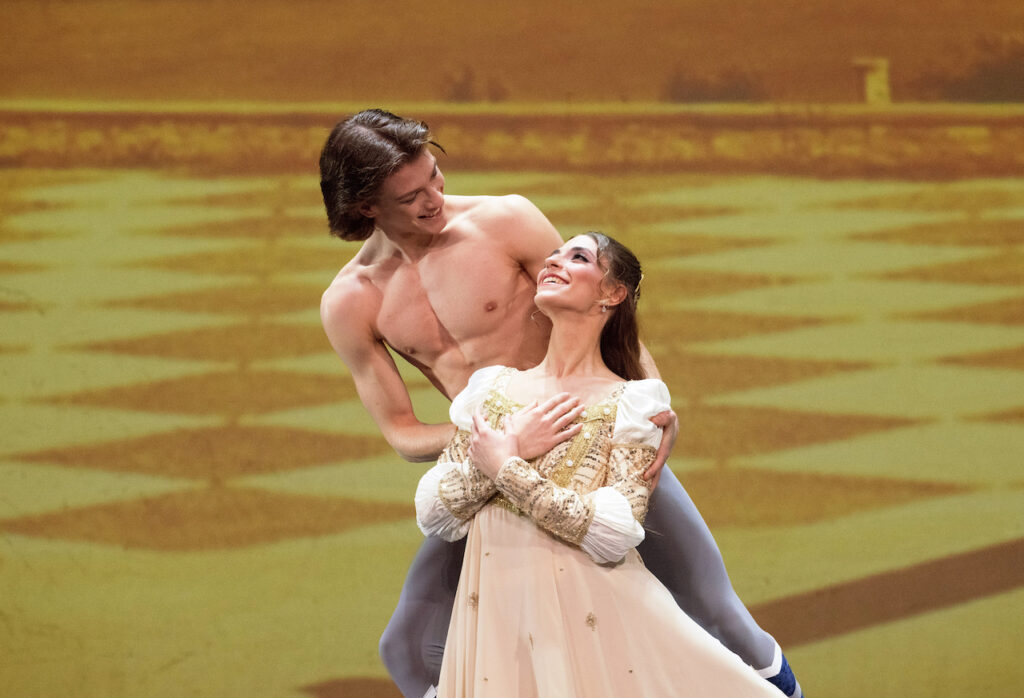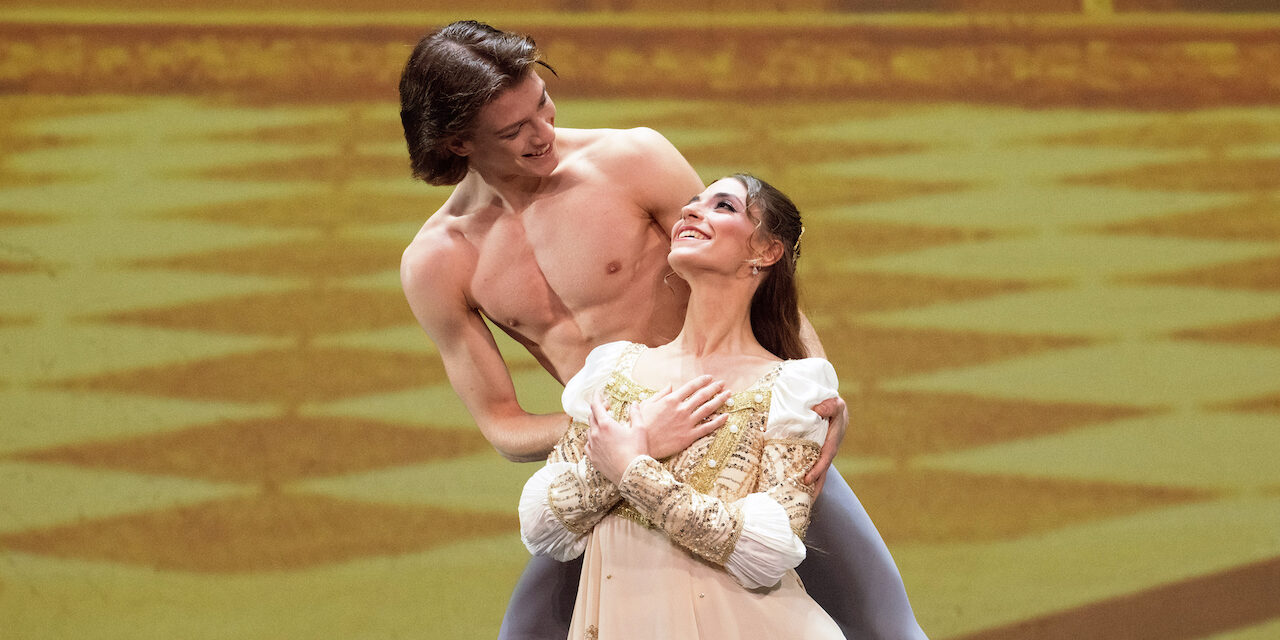
7 January
On a 20-stop tour of the UK, last night it was Bristol’s turn to host the much-travelled Varna International Ballet from Bulgaria, a company renowned for its annual international ballet competition. Led by Artistic Director Daniela Dimova, this most sorrowful of love stories was performed with palpable emotion, expression and boundless energy by a young and talented troupe.
Prokofiev’s ballet closely follows the plot of the Shakespearean play, set in sixteenth century Verona, where the warring Capulet and the Montague families render the love between Juliet and Romeo an impossibility until the couple decides otherwise, but at terrible cost to themselves.
For the ballet to work at all we have to believe that the Romeo and Juliet we are witnessing are truly in love. 22-year-old Mirko Andreutti as Romeo and 24-year-old Andrea Conforti as Juliet seemed genuinely charmed and excited from the moment they set eyes on each other – investing this performance with elevated emotion, expressed throughout with empathetic movement across the enormous expanse of the Hippodrome stage – Conforti always light as air, Andreutti ever the smiling lover Romeo, effortlessly, so it would seem, able to produce high ‘saut de chat’ leaps to express his ecstasy.
And while the Ballet Orchestra under the baton of Peter Tuleshkov provided plenty of drive (special mention to double bass player Gabriela Tzvetanova who seemed to express every note with noticeable relish), it was the dance soloists who most impressed. In particular there were memorable performances by Giovanni Pompei as a menacing Tybalt bedecked in deep claret whose swivelling high kicks impressed and an animated Mercutio played with enough provocative impudence by Vittorio Scolè to gain him a big cheer at the final curtain. Andreutti and Conforti’s balcony pas-de-deux at times suggested something more physical than perfectly synchronised poetic shapes, but never lacked touching and beautifully expressed sentiment. Danylo Motkov, appearing as both Paris and Escalus, was suitably courtly and aloof, while Roberta Estrela poured sympathy into her portrayal of Juliet’s Nurse.
Because of the ‘whistle-stop’ nature of Varna’s tour, the staging of the three ballets it is performing, the sets for Swan Lake and The Nutcracker as well as Romeo & Juliet, have been reduced to vestigial back-projected scenes of questionable quality. That could have impinged on the overall effect of the production had it not been for the impact of Dmitry Tcherbadzhi’s costumes – with an ensemble appearing in startling scarlet and black, a nod towards the colours of Bulgarian national costume perhaps, and later as a dance macabre in black and white skeletal outfits that brought a new and ominous dimension to the story telling.
Varna will continue to win friends and new recruits to dance wherever it performs, while Prokofiev’s inspirational composition still thrills, no more so than in the rousing and powerful March of the Knights, where the Capulet family marches towards the front of the stage like an unstoppable juggernaut.
★★★★☆ Simon Bishop, 8 January 2025


